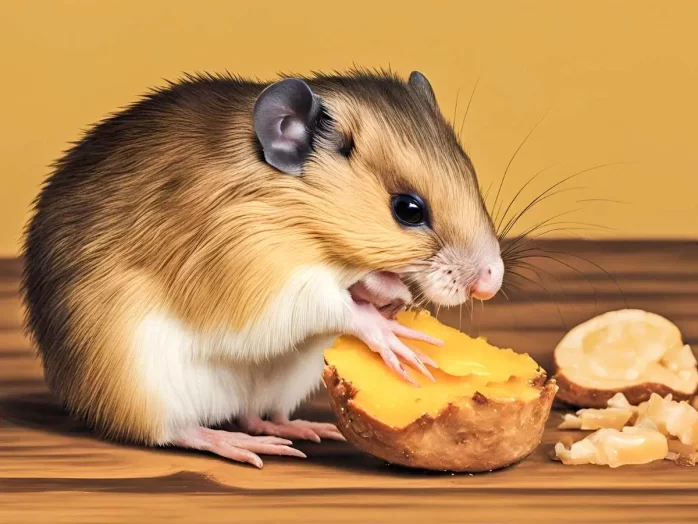Safe Foods for Rats
Rats are omnivores, meaning they can eat a variety of foods. Here are some safe options to include in their diet:
Fresh Fruits and Vegetables
- Apples (without seeds): Apples are a great source of vitamins, but be sure to remove the seeds as they contain cyanide.
- Bananas: Rich in potassium, bananas are a favorite treat among rats.
- Berries: Blueberries, strawberries, and raspberries are packed with antioxidants.
- Carrots: Carrots are excellent for gnawing and provide essential vitamins.
- Broccoli: This vegetable is rich in fiber and vitamins.
- Spinach: Packed with iron and other nutrients, spinach can be given in moderation.
Grains and Cereals
- Oats: Oats are a healthy choice that provides fiber and energy.
- Whole-grain bread: Small pieces of whole-grain bread are a good source of fiber.
- Rice: Cooked brown rice is a nutritious option for your pet rat.
Proteins
- Cooked chicken: Lean and free of seasoning, cooked chicken is a great protein source.
- Eggs: Hard-boiled eggs provide essential nutrients.
- Beans: Cooked beans are a healthy protein source, but avoid raw beans as they can be toxic.
Foods to Avoid
While rats can eat a variety of foods, there are some that should be strictly avoided:
Toxic Foods
- Citrus fruits: Oranges and lemons can cause kidney problems in male rats.
- Chocolate: Contains theobromine, which is toxic to rats.
- Onions and garlic: These can cause gastrointestinal upset and anemia.
- Raw potatoes: Contain solanine, which is toxic to rats.
Processed and Sugary Foods
- Candy and sweets: High sugar content can lead to obesity and dental issues.
- Salty snacks: Chips and other salty foods can cause dehydration and other health issues.
- Junk food: Burgers, fries, and other human junk foods are unhealthy and can lead to obesity.
Creating a Balanced Diet
A balanced diet for your pet rat should include a variety of fresh fruits and vegetables, grains, and proteins. Commercial rat pellets can also be included to ensure they get all the necessary nutrients. Here are some tips to help you create a balanced diet:
Proportions
- 80% commercial rat pellets: These should form the bulk of your rat's diet as they are specifically formulated to meet their nutritional needs.
- 15% fresh fruits and vegetables: Provide a variety of safe options to ensure a balanced intake of vitamins and minerals.
- 5% treats: Healthy treats can be given occasionally. Avoid overfeeding to prevent obesity.
Feeding Schedule
Rats are natural foragers and prefer to eat small amounts throughout the day. Divide their food into several small portions and scatter them around their cage to encourage natural foraging behavior.
Hydration
Always provide fresh, clean water for your rats. Water bottles with sipper tubes are a great option to prevent contamination. Ensure the water is changed daily and the bottle is cleaned regularly.
Signs of a Healthy Diet
A healthy diet will reflect in your rat's overall well-being. Here are some signs to look for:
- Shiny coat: A healthy diet will result in a glossy, smooth coat.
- Active behavior: Well-fed rats are active and curious.
- Healthy weight: A balanced diet helps maintain a healthy weight, preventing obesity or malnutrition.
Common Feeding Mistakes
Avoid these common mistakes to ensure your rat's diet remains healthy:
- Overfeeding: Overfeeding treats or high-fat foods can lead to obesity.
- Monotonous diet: A lack of variety can lead to nutritional deficiencies. Ensure you provide a range of foods.
- Feeding dangerous foods: Always double-check whether a food is safe before giving it to your rats.
Conclusion
Feeding your pet rat a balanced and nutritious diet is crucial for their health and well-being. By understanding what foods rats can eat and what they should avoid, you can ensure your furry friends live a happy and healthy life. Remember to provide fresh water, monitor their diet, and avoid common feeding mistakes. With proper care and nutrition, your pet rats will thrive and bring joy to your home for many years.
By following this comprehensive guide, you'll be well-equipped to answer the question, "What can rats eat and not eat?" and provide the best care for your pet rats.











